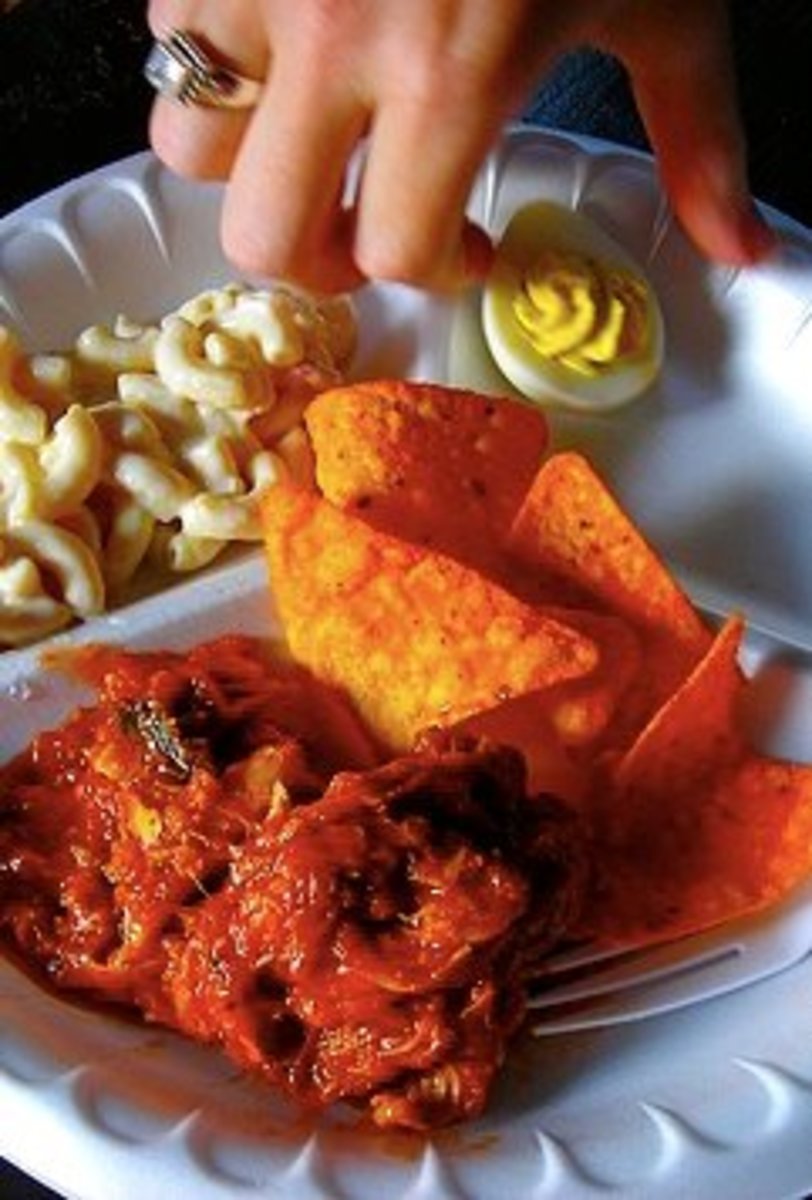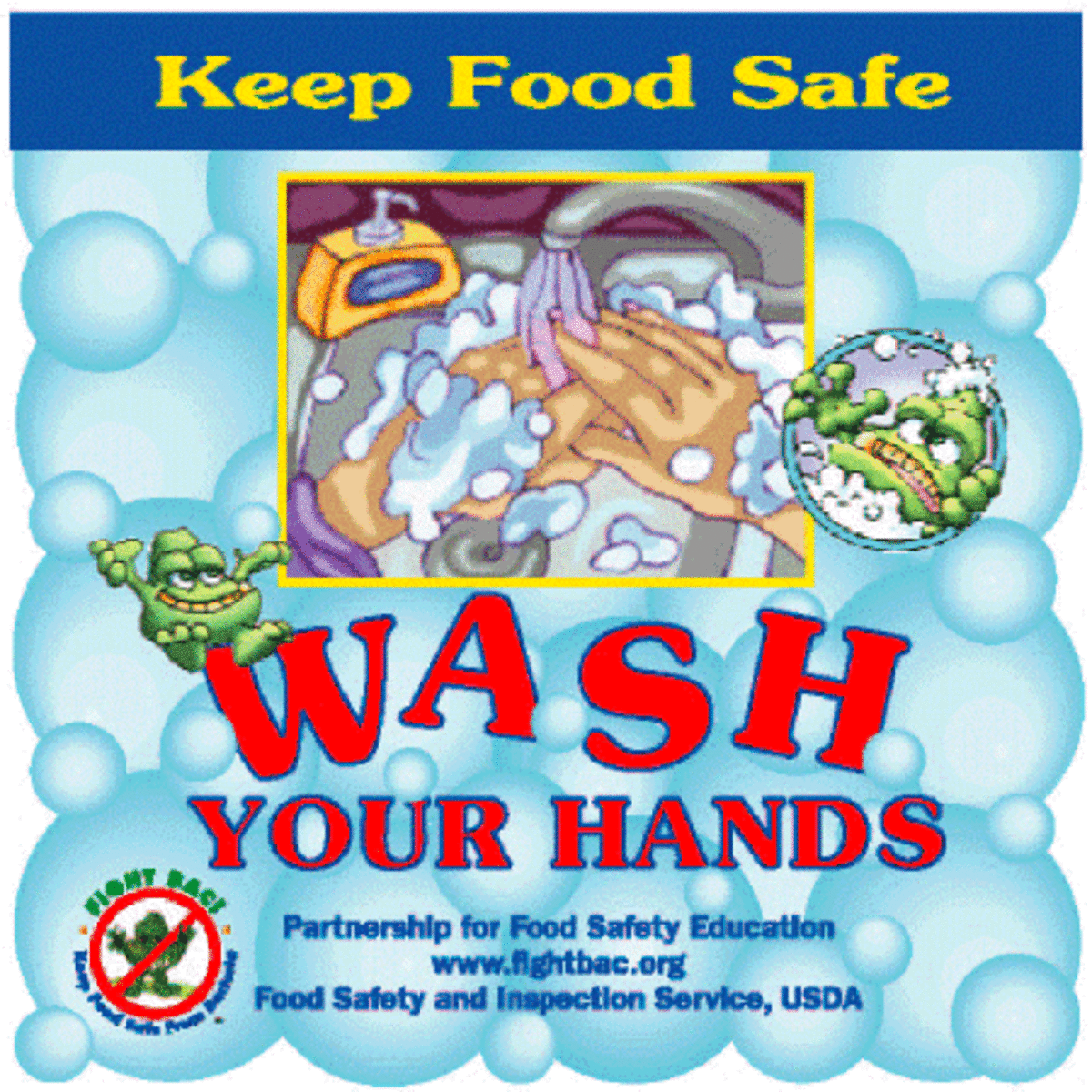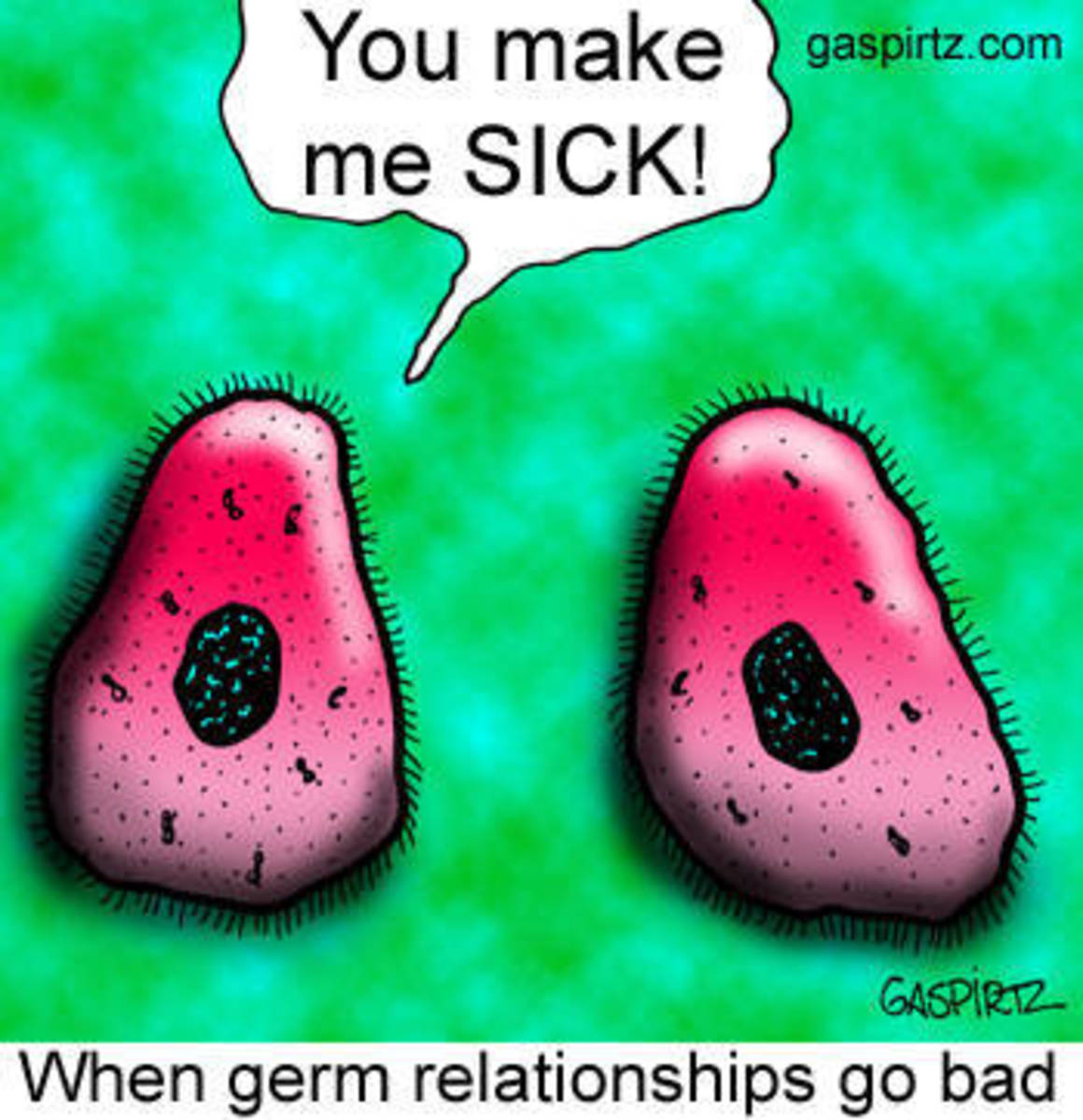Why You Should Not Eat Foods that Contain the Ingredient Carrageenan
Silk soymilk
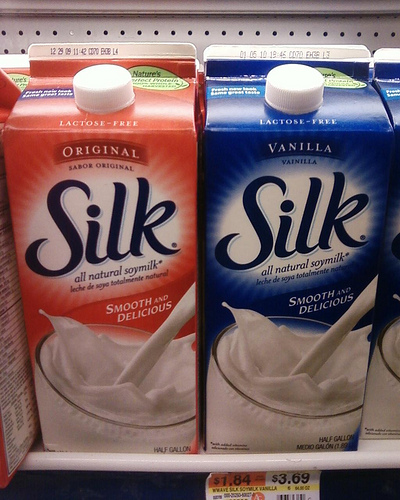
Caramel Dessert Topping
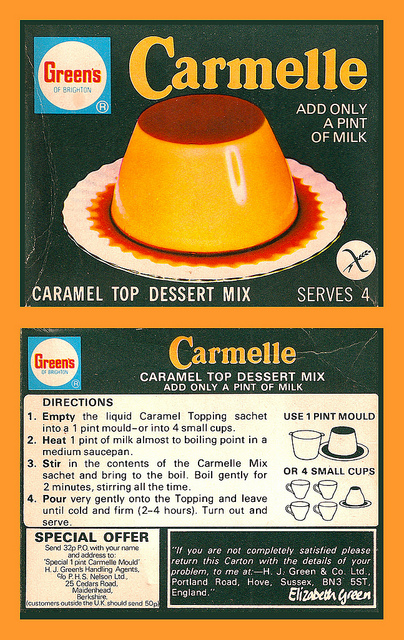
Foods That Could Contain Carrageenan
- Baby formula
- Cottage cheese
- Diet sodas
- Frosting mixes
- Hershey's Chocolate
- Ice cream and Sherbet
- Jams and Jellies
- Liquid Coffee Creamer
- NesQuik Liquid Chocolate Milk
- Oscar Meyer Lunch Meats
- Pet food
- Pie fillings
- Processed cheese
- Processed meats
- Processed fish
- Puddings (without dairy)
- Purity Brand Chocolate Milk
- Silk brand soy milk
- Snickers Ice Cream bars
- TruMoo Chocolate Milk
- Yogurts
Nesquik Vending Machine
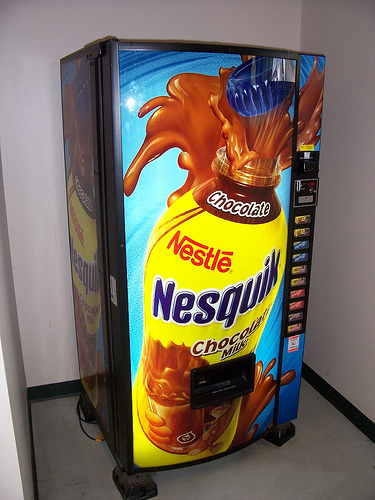
A Real Life Story
One couple's child had an undiagnosed metabolic disorder as an infant, resulting in stunted growth. Doctors performed emergency surgery on the child, inserting a G-tube into his stomach. They force fed the baby formula which happened to contain Carrageenan.
According to the parents: "The more they insisted we pump through him, the sicker he became, the more mucous his body produced, and he nearly died. Rapid improvement occurred when we stopped feeding him the formula under a new doctor’s care, who wanted him breastfed and self-selecting his diet (all whole foods) while his gut healed. It was then we started looking into food additives, most of which trigger our son’s gastro-reflex issues. After complete avoidance of food containing Carrageenan, he quickly recovered.”
Story from TotalHealthMagazine by Dr. Gloria Gilbere, Dahorn, PHD
Harmful Side Effects of Carrageenan
You May Be Eating Dangerous Things
Very recently, I reached into the freeze and pulled out an Ice Cream Snickers bar. As I was about to eat it, I notice one ingredient on the label: Carrageenan.
After doing research on the ingredient Carrageenan, I may never buy Snickers Ice Cream bars again.
Did you know Carrageenan is also found in Oscar Meyer lunch meats?
The next time you go to the grocery, look at the label. I just recently noticed that Carrageenan was in the Oscar Meyer brand ham and turkey lunch meats. Was this meat originally a liquid, and then turned into a solid before sliced? It makes me think twice before buying processed lunch meats.
That's because I don't need to de-ice my internal organs.
Carrageenan is also used to de-ice planes on the runway, which I have experienced as well, as I sat in the Minneapolis airport.
When it comes to food, they say "ignorance is bliss" -- but once you learn of the chemicals going into your body, only an ignorant person would continue to put toxic things into their body.
How is it Harvested in Nature?
Carrageenan is taken from red seaweed with a chemical process using an alkali solvent.
In nature, Carrageenan is considered healthy for you, and safe to eat. That is, if you eat it naturally in red seaweed. But after chemical extraction, it is considered harmful to consume.
Why do they put Carrageenan in Foods?
Carrageenan is used as a food thickener, and it is also used to de-ice planes sitting on a runway.
It is often used in processing foods because it is low-calorie, and gives food a thicker texture. The only downside is that it can cause digestive problems, diarrhea, and has other harmful side effects (more details in the next section).
Non-food uses of Carrageenan: pharmaceutical products, cosmetic products, pesticides, toothpaste, deodorizers, shampoos, & air fresheners.
What does Carrageenan do to the Body?
Carrageenan is linked to a variety of gastrointestinal disorders, as it coats the stomach with a thick layer (think Honey). Since carrageenan is also in soy products, a person could be having a reaction to the carrageenan, and mistake the reaction to be connected to soy.
One researcher is concerned it is linked to cancer. (More on that in the next section)
Resulting Symptoms: Carrageenan also glutamate production in the body, which increases thirst, headaches, and "hangover-like" symptoms.
What it does to little children is even worse:
In children, Carrageenan can increase temper, diarrhea (or loose bowels), and hyperactivity.
Commentary: This is particularly worrisome, since Carrageenan is in many ice cream products marketed to families with children.
Is Carrageenan Cause for Concern?
I'd say so.
Researchers* are concerned that high quantities of Carrageenan stored in the gut are linked to cancer, as they are already positive it contributes to digestive disorders.
*Research was conducted at the University of Iowa College of Medicine by Joanne Tobacman (MD).
Dr. Tobacman published her findings in the October 2012 issue of Environmental Health Perspectives.
Government Agencies are Not on Board
The Food and Drug Administration (FDA) in the U.S. still considers Carrageenan "safe" for human consumption "when used in the amount necessary as an emulsifier, stabilizer, or thickener in foods."
The National Organic Program (NOP) re-evaluated Carrageenan in 2008, and includes it on its list mainly due to the fact that it is "critical to organic production and handling operations."
The European Food Safety Authority stated "there is no evidence of any adverse effects in humans from exposure to food-grade Carrageenan, or that exposure to degraded Carrageenan from use of food-grade Carrageenan is occurring."
Are these government agencies really looking out for real people, or are they operating with political agendas?
Read This Related Hub
- Aspartame Artificial Sweeteners: Delicious or Deadly?
Do you know what you are consuming? Some zero calorie artificial sweeteners claim to be good for a person on a diet, but really have far more dangers than positives. Find out more on artificial sweeteners that have been altered at the molecular level
Sources of Information on Carrageenan:
- Gilbere, DAHom, Gloria PhD. "Carrageenan Food Additive and Aircraft De-Icer." TotalHealth Magazine
- Carrageenan entry. Wikipedia
- Tobacman, Joanne. Environmental Health Perspectives. October 2012.
© 2013 Zack Love

